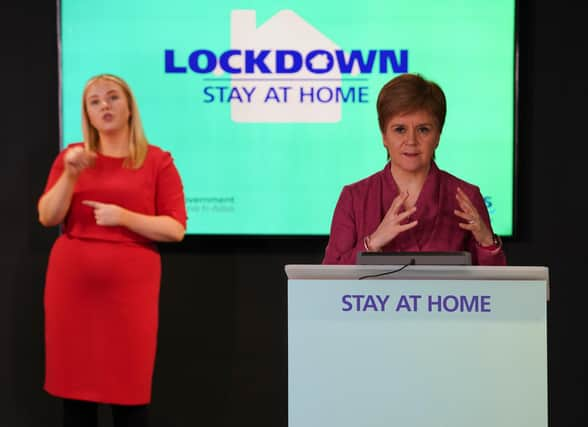BBC refuse to release number of complaints received about Nicola Sturgeon's daily briefing


In response to a Freedom of Information request from The Scotsman, the broadcaster said the information would be kept secret due to its use for the purposes of “journalism, art of literature”.
The request had asked for a breakdown of the number of complaints received by the BBC for each broadcast of the Scottish Government’s daily briefing.
Advertisement
Hide AdAdvertisement
Hide AdThe refusal follows a row between the BBC and both the Scottish Conservatives and the SNP over the format of the show.
BBC schedulers have been simultaneously criticised for showing the briefing without offering a reply from opposition parties and for allowing opposition parties to respond to the briefing without having an SNP or Scottish Government voice.
It has also come under pressure to stop broadcasting the briefing altogether, which initially led to a decision to stop showing the briefing in September. The decision was later overturned following an outcry from the SNP.
The broadcast is currently shown on BBC One Scotland and the BBC Scotland channel, with opposition politicians given a platform on BBC One while questions from journalists are broadcast on BBC Scotland.
In response to the information request, the broadcaster said: “Editorial complaints form part of the ongoing review of the standards and quality of particular areas of programme making with a view to further enhancing these standards; the complaints themselves and the information associated with them plays a significant role in helping to inform editorial discussion and decisions going forward.
"In this way, information relating to editorial complaints is used to inform future content and improve the quality of journalistic output. This is an important part of the BBC’s process of creating and improving programmes.
"The BBC, as a media organisation, is under a duty to impart information and ideas on all matters of public interest and the importance of this function has been recognised by the European Court of Human Rights.
"Maintaining our editorial independence is a crucial factor in enabling the media to fulfil this function.”
Advertisement
Hide AdAdvertisement
Hide AdThe BBC has previously refused to release details of complaints submitted to it by political parties, The National reported earlier in January.
A message from the Editor:
Thank you for reading this article. We're more reliant on your support than ever as the shift in consumer habits brought about by coronavirus impacts our advertisers.
If you haven't already, please consider supporting our trusted, fact-checked journalism by taking out a digital subscription.
Comments
Want to join the conversation? Please or to comment on this article.
